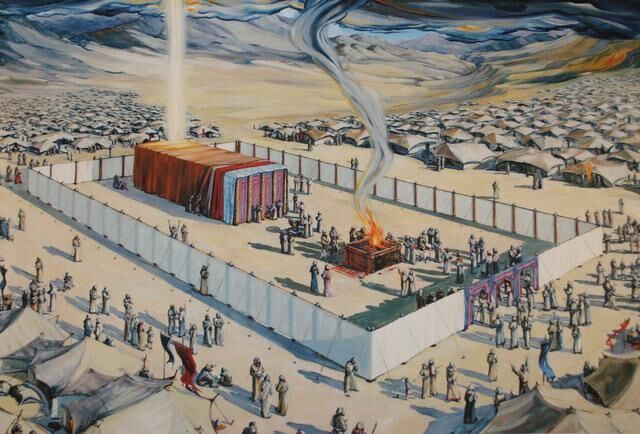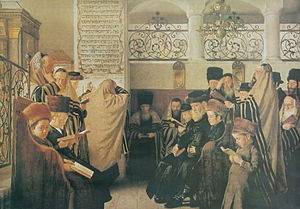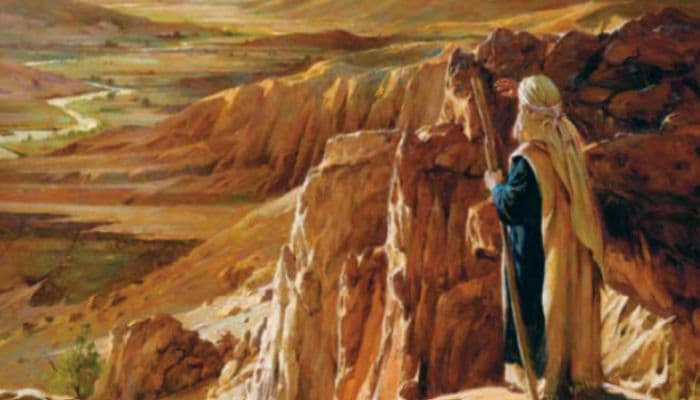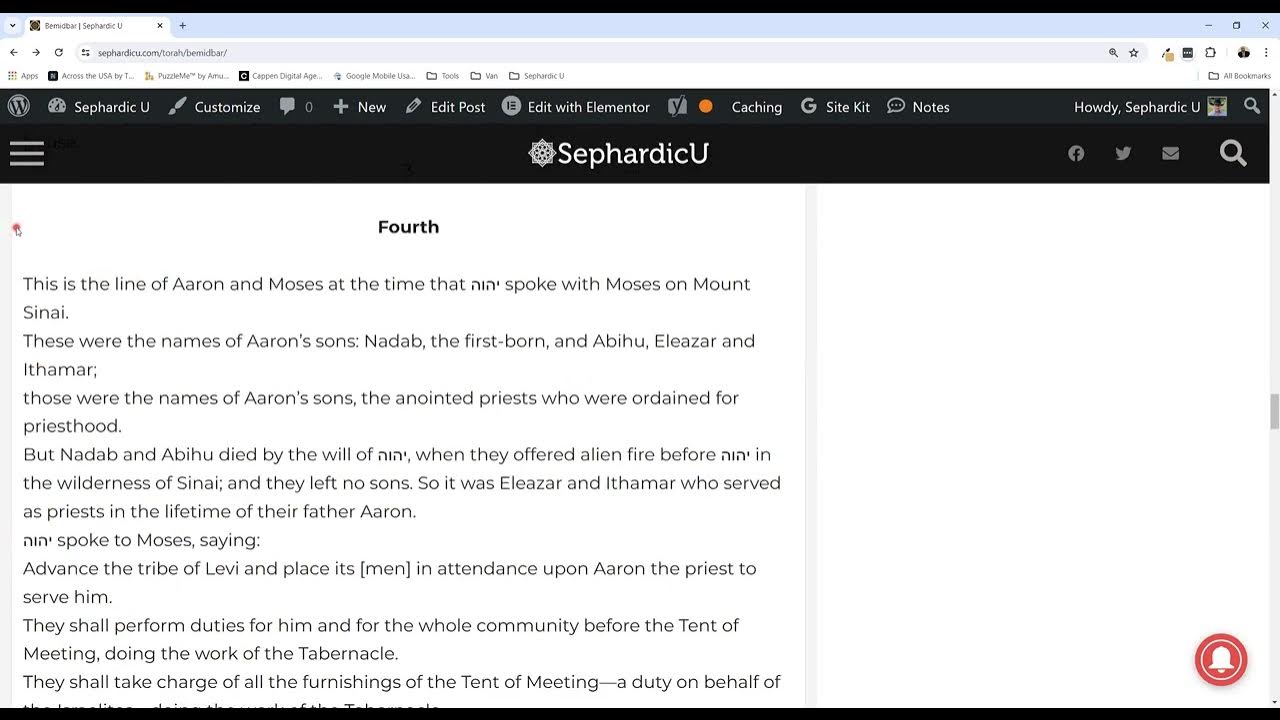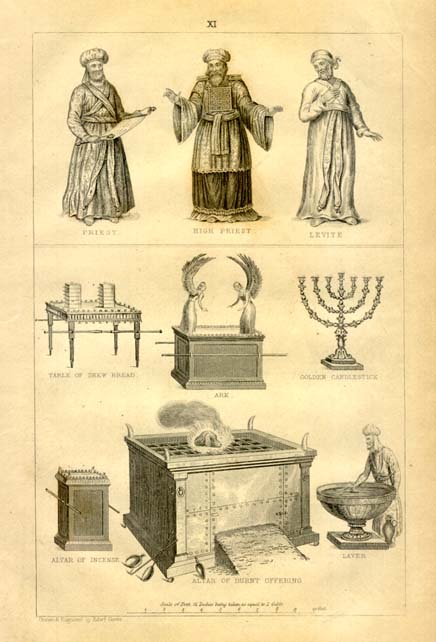| Aspect | Description |
|---|---|
| Parasha Number | The 34th Parasha in the Torah and the 1st in the Book of Numbers (Bemidbar). |
| Parasha Name | Bemidbar (בְּמִדְבַּר), meaning “In the wilderness” in Hebrew, referring to the setting of the events in this portion. |
| Torah Book | Numbers (Bemidbar). |
| Number of Verses | Comprises 159 verses. |
| Number of Words | Approximately 1,826 words in the Hebrew text. |
| Primary Characters | Key figures include Moses, Aaron, the leaders of the tribes, and the Levites. |
| Key Themes | Focuses on the census of the Israelite tribes, the organization of the camp, and the duties of the Levites, emphasizing order and structure within the community. |
| Significant Events | Includes the census of the Israelite men fit for military service, the arrangement of the tribes around the Tabernacle, and the assignment of specific duties to the Levites. |
| Notable Quotes | “Take a census of the whole Israelite community by their clans and families, listing every man by name, one by one.” (Numbers 1:2) |
| Legacy | Parashat Bemidbar highlights the importance of community organization and the roles of individuals within the collective, setting the stage for the Israelites’ journey through the wilderness. |
| Relevance Today | The themes of community organization, leadership, and the roles of individuals remain relevant in contemporary Jewish practice, guiding communal life and responsibilities. |
| Well-Known Stories | Include the census of the Israelite tribes and the specific duties assigned to the Levites, illustrating the importance of order and division of responsibilities. |
| Special Observances | Read in synagogues during the week leading up to the festival of Shavuot, emphasizing preparation and community readiness. |
| Connections to Texts | Bemidbar builds upon the preceding narratives in Exodus and Leviticus, reinforcing the organizational structure of the Israelite community as they prepare for their journey. |
| Theological Significance | Emphasizes the significance of order, duty, and the communal aspect of worship and service to God, reinforcing the unity and purpose of the Israelite nation. |
Parashat Bemidbar, the 34th portion in the Torah and the 1st in the Book of Numbers (Bemidbar), derives its name from the Hebrew word “Bemidbar,” meaning “In the wilderness.” This portion focuses on the census of the Israelite tribes, the organization of their camp, and the specific duties assigned to the Levites, highlighting the themes of order and structure within the community.
Throughout Parashat Bemidbar, God commands Moses to take a census of the Israelite men eligible for military service, emphasizing the importance of knowing and organizing the community. The portion details the arrangement of the tribes around the Tabernacle, with each tribe assigned a specific position, ensuring a structured and orderly camp.
A notable highlight of Parashat Bemidbar is the assignment of duties to the Levites. Unlike the other tribes, the Levites are not included in the military census but are given the responsibility of caring for the Tabernacle and its furnishings, underscoring their unique role in the spiritual leadership of the community.
Parashat Bemidbar underscores the significance of communal organization and the roles of individuals within the collective. It highlights the importance of each person’s contribution to the community’s overall function and success.
Moreover, Parashat Bemidbar emphasizes the need for preparation and readiness as the Israelites journey through the wilderness. It serves as a powerful reminder of the importance of structure, duty, and communal responsibility in achieving their goals and maintaining their covenant with God.
In addition to its focus on the census and the duties of the Levites, Parashat Bemidbar reinforces the themes of unity and purpose within the Israelite nation. It calls upon the community to recognize and fulfill their individual and collective roles, ensuring the smooth functioning of the camp and their journey towards the Promised Land.
Overall, Parashat Bemidbar serves as a profound guide for community organization and responsibility, highlighting the critical role of order and duty in securing communal well-being and divine favor. It continues to inspire Jewish communities today in their pursuit of a life characterized by structure, purpose, and adherence to communal responsibilities and divine commandments.
במדבר
במדבר א׳
שני
שלישי
רביעי
חמישי
שישי
שביעי
Bemidbar
Numbers 1:1-4:20
הושע
ב׳:א׳-כ״ב
Hosea
2:1-22
And your sisters “Lovingly Accepted!”
For she is not My wife
And I am not her husband—
And let her put away her whoredom from her face
And her adultery from between her breasts.
And leave her as on the day she was born:
And I will make her like a wilderness,
Render her like desert land,
And let her die of thirst.
For they are now a whore’s brood,
She that conceived them has acted shamelessly—
Because she thought,
“I will go after my lovers,
Who supply my bread and my water,
My wool and my linen,
My oil and my drink.”
I will hedge up her roads with thorns
And raise walls against her,
And she shall not find her paths.
She shall not overtake them;
And seek them as she may,
She shall never find them.
Then she will say,
“I will go and return
To my first husband,
For then I fared better than now.”
It was I who bestowed on her
The new grain and wine and oil;
I who lavished silver on her
And gold—which they used for Baal.
I will take back My new grain in its time
And My new wine in its season,
And I will snatch away My wool and My linen
That serve to cover her nakedness.
In the very sight of her lovers,
And not one of them shall save her from Me.
Her festivals, new moons, and sabbaths—
All her festive seasons.
Which she thinks are a fee
She received from her lovers;
I will turn them into brushwood,
And beasts of the field shall devour them.
For the days of the Baalim,
On which she brought them offerings;
When, decked with earrings and jewels,
She would go after her lovers,
Forgetting Me
—declares GOD.
I will speak coaxingly to her
And lead her through the wilderness
And speak to her tenderly.
And the Valley of Achor as a plowland of hope.
There she shall respond as in the days of her youth,
When she came up from the land of Egypt.
—declares GOD—
You will call [Me] Ishi,
And no more will you call Me Baali.
And they shall nevermore be mentioned by name.
I will espouse you with righteousness and justice,
And with goodness and mercy,
Then you shall be devoted to GOD.
Bemidbar
more on Parashat Parashat Bemidbar: Census of Israel
Quick Guide: The Five Books of Moses
| Genesis | Exodus | Leviticus | Numbers | Deuteronomy |
|---|---|---|---|---|
| Bereshit (1:1-6:8) |
Shemot (1:1-6:1) |
Vayikra (1:1-5:26) |
Bemidbar (1:1-4:20) |
Devarim (1:1-3:22) |
| Noach (6:9-11:32) |
Va'era (6:2-9:35) |
Tzav (6:1-8:36) |
Naso (4:21-7:89) |
Va'etchanan (3:23-7:11) |
| Lech Lecha (12:1-17:27) |
Bo (10:1-13:16) |
Shemini (9:1-11:47) |
Behaalotecha (8:1-12:16) |
Ekev (7:12-11:25) |
| Vayera (18:1-22:24) |
Beshalach (13:17-17:16) |
Tazria (12:1-13:59) |
Shelach (13:1-15:41) |
Re'eh (11:26-16:17) |
| Chaye Sarah (23:1-25:18) |
Yitro (18:1-20:23) |
Metzora (14:1-15:33) |
Korach (16:1-18:32) |
Shoftim (16:18-21:9) |
| Toledot (25:19-28:9) |
Mishpatim (21:1-24:18) |
Achare Mot (16:1-18:30) |
Chukat (19:1-22:1) |
Ki Tetze (21:10-25:19) |
| Vayetze (28:10-32:3) |
Terumah (25:1-27:19) |
Kedoshim (19:1-20:27) |
Balak (22:2-25:9) |
Ki Tavo (26:1-29:8) |
| Vayishlach (32:4-36:43) |
Tetzaveh (27:20-30:10) |
Emor (21:1-24:23) |
Pinchas (25:10-30:1) |
Nitzavim (29:9-30:20) |
| Vayeshev (37:1-40:23) |
Ki Tisa (30:11-34:35) |
Behar (25:1-26:2) |
Matot (30:2-32:42) |
Vayelech (31:1-30) |
| Miketz (41:1-44:17) | Vayakhel (35:1-38:20) |
Bechukotai (26:3-27:34) |
Masei (33:1-36:13) |
Haazinu (32:1-52) |
| Vayigash (44:18-47:27) |
Pekude (38:21-40:38) |
V'Zot HaBeracha (33:1-34:12) |
||
| Vayechi (47:28-50:26) |

